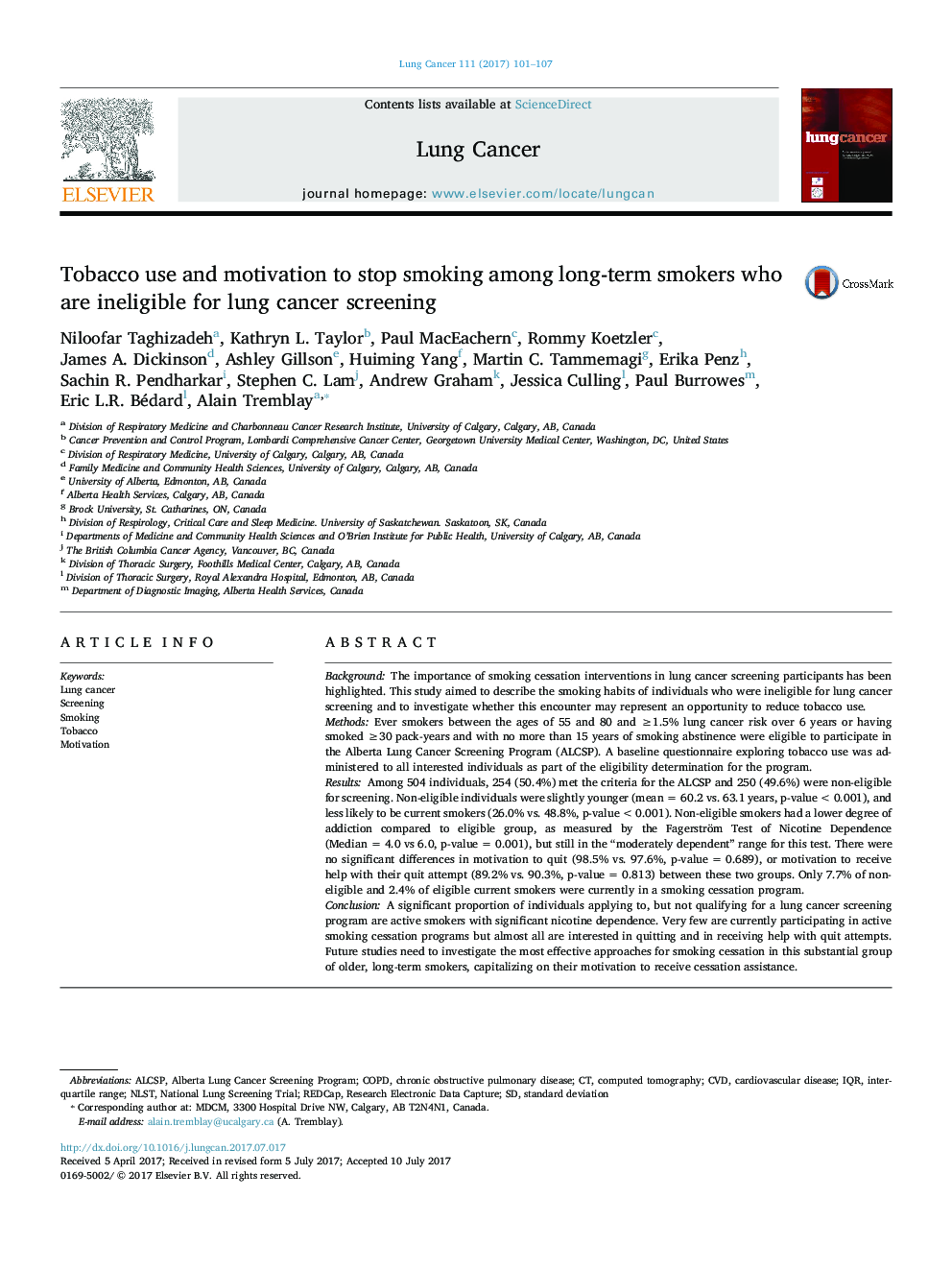| کد مقاله | کد نشریه | سال انتشار | مقاله انگلیسی | نسخه تمام متن |
|---|---|---|---|---|
| 5528332 | 1547956 | 2017 | 7 صفحه PDF | دانلود رایگان |
- Smoking behavior of non-eligible individuals for screening is proposed.
- A significant proportion of them are active smokers.
- A significant proportion of them have significant nicotine dependence.
- Very few are currently participating in active smoking cessation programs.
- Almost all are interested in quitting and in receiving help with quit attempts.
BackgroundThe importance of smoking cessation interventions in lung cancer screening participants has been highlighted. This study aimed to describe the smoking habits of individuals who were ineligible for lung cancer screening and to investigate whether this encounter may represent an opportunity to reduce tobacco use.MethodsEver smokers between the ages of 55 and 80 and â¥1.5% lung cancer risk over 6 years or having smoked â¥30 pack-years and with no more than 15 years of smoking abstinence were eligible to participate in the Alberta Lung Cancer Screening Program (ALCSP). A baseline questionnaire exploring tobacco use was administered to all interested individuals as part of the eligibility determination for the program.ResultsAmong 504 individuals, 254 (50.4%) met the criteria for the ALCSP and 250 (49.6%) were non-eligible for screening. Non-eligible individuals were slightly younger (mean = 60.2 vs. 63.1 years, p-value <0.001), and less likely to be current smokers (26.0% vs. 48.8%, p-value <0.001). Non-eligible smokers had a lower degree of addiction compared to eligible group, as measured by the Fagerström Test of Nicotine Dependence (Median = 4.0 vs 6.0, p-value = 0.001), but still in the “moderately dependent” range for this test. There were no significant differences in motivation to quit (98.5% vs. 97.6%, p-value = 0.689), or motivation to receive help with their quit attempt (89.2% vs. 90.3%, p-value = 0.813) between these two groups. Only 7.7% of non-eligible and 2.4% of eligible current smokers were currently in a smoking cessation program.ConclusionA significant proportion of individuals applying to, but not qualifying for a lung cancer screening program are active smokers with significant nicotine dependence. Very few are currently participating in active smoking cessation programs but almost all are interested in quitting and in receiving help with quit attempts. Future studies need to investigate the most effective approaches for smoking cessation in this substantial group of older, long-term smokers, capitalizing on their motivation to receive cessation assistance.
Journal: Lung Cancer - Volume 111, September 2017, Pages 101-107
